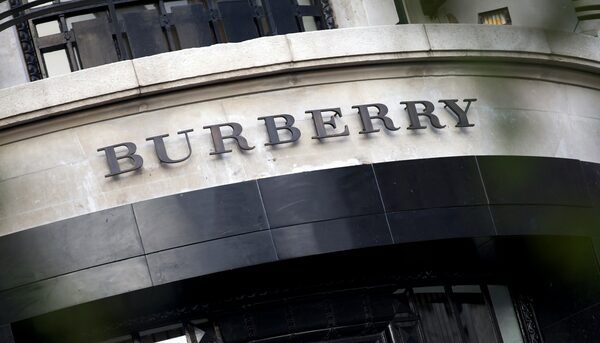
Burberry warned on March 19, 2020 that due to the impact of the coronavirus pandemic, it expects a 30 per cent drop in store sales in the first three months of 2020.ANDREW COWIE/AFP/Getty Images
Britain’s Burberry said sales in the final weeks of March would plunge by up to 80 per cent as the impact of coronavirus already seen in China spread to Europe and the United States, causing stores to close and luxury shopping to dry up.
The British brand said like-for-like sales in the final weeks of its financial year to March 28 would be down 70 per cent to 80 per cent, and as a result fourth-quarter sales would be 30 per cent lower.
Burberry, like other high-end fashion labels, saw the early impact of the coronavirus crisis in February when Chinese sales, which account for about 40 per cent of its total, fell sharply.
Trading in other major luxury centres in Europe and the United States has slumped as the virus became a global epidemic.
“More than 60 per cent of our stores in EMEIA (Europe, Middle East, India and Africa) and around 85 per cent of our stores in the Americas are currently closed with those still open operating with reduced hours and with very weak footfall,” the company said on Thursday.
Major European cities including Paris, Milan and Madrid are in lockdown and international tourism has ground to a halt as countries try to slow the spread of the virus.
German fashion house Hugo Boss on Wednesday scrapped the outlook it gave for 2020 results less than two weeks ago. Like Burberry, it said many of its retail stores and concessions in Europe and North America were closed and the impact was impossible to quantify at this point.
Burberry, famed for its trench coats and check scarves, dropped its revenue and profit forecast for the year to end-March in February when it updated on the coronavirus impact in Asia. Before that it was forecasting a low-single digit rise in revenue and a broadly stable margin.
Its shares traded up 1.5 per cent to 1,126 pence, having fallen 19 per cent in the last five days, and lost 44 per cent of their value over the last month, compared to Britain’s bluechip index which is down 31 per cent in the period.
Burberry said on Thursday trading in China had started to improve in recent weeks as shops had started to reopen.
Chief executive Marco Gobbetti has been repositioning Burberry further upmarket with refreshed product ranges by designer Riccardo Tisci, which had seen a strong early response from customers.
He said he remained confident in the strength of the brand and his strategy, and it was protecting key growth initiatives in preparation for a recovery in luxury demand.
The company said it had 600 million pounds of cash and a 300 million pound revolving credit facility, and was working to cut costs to help maintain a strong financial position.
The action would include renegotiating rents, restricting travel and reducing discretionary spending, it said.
Hargreaves Lansdown equity analyst Nicholas Hyett said the group’s balance sheet was healthy and would help the group weather the downturn, but only for so long.
“The key question for investors is how long will the current lockdowns last?,” he said.